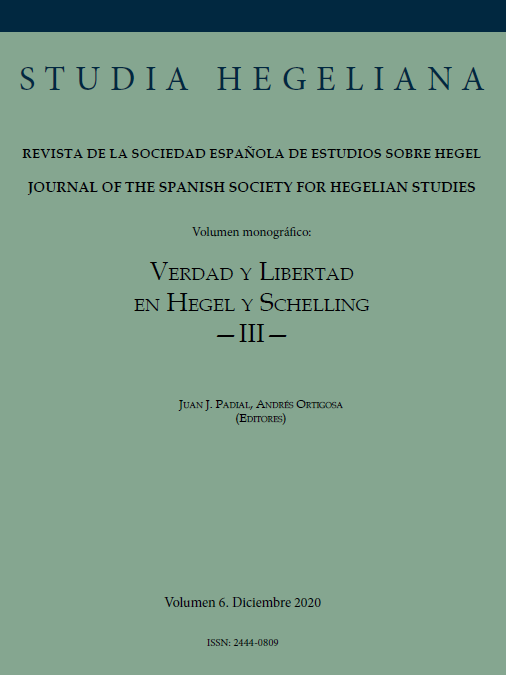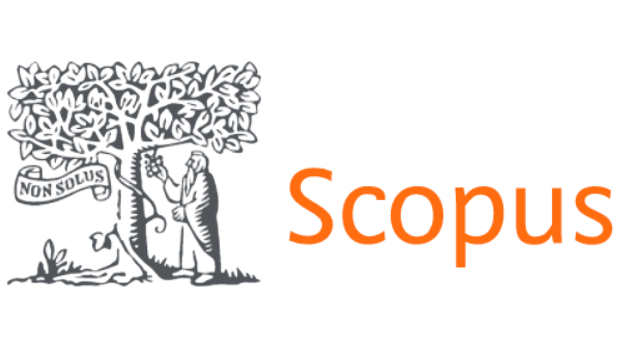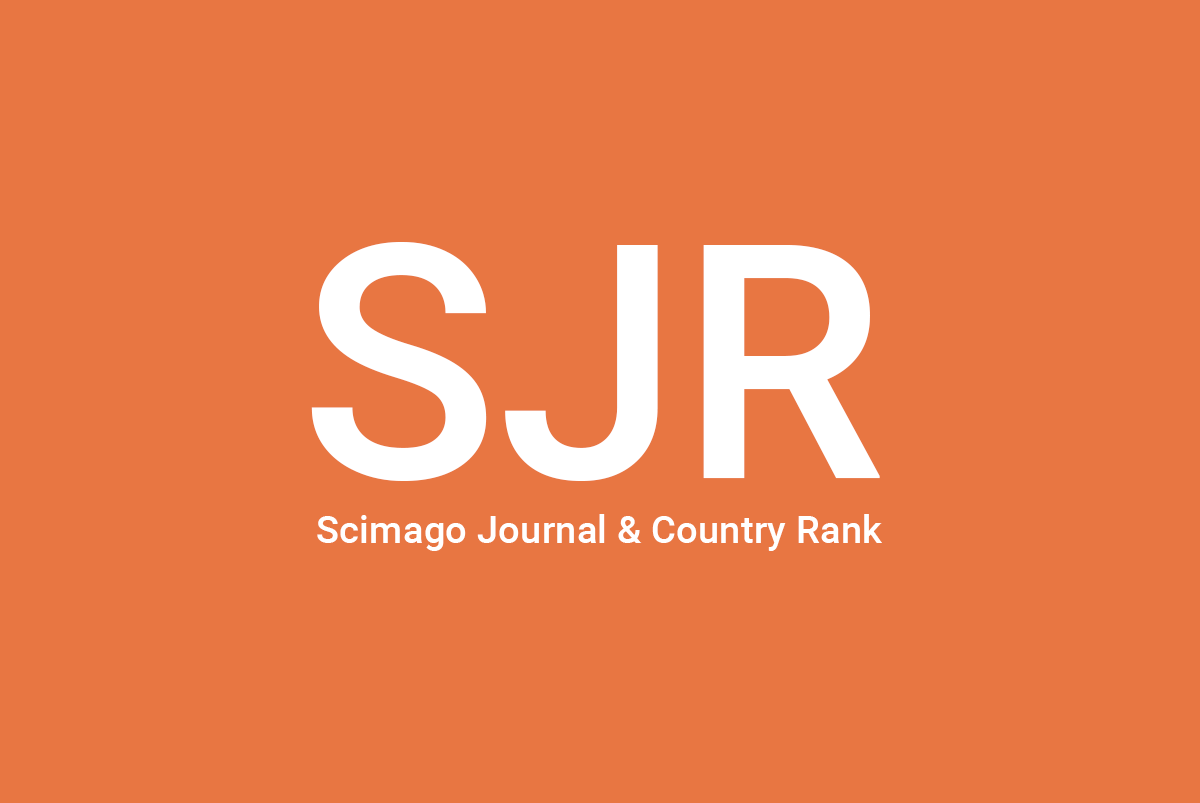The importance of evil for the understanding of Freedom and its role in the emergence of the personality in Friedrich Schelling’s Freiheitsschrift
DOI:
https://doi.org/10.24310/Studiahegelianastheg.v6i.11431Schlagworte:
SCHELLING, LIBERTAD, ŽIŽEK, MALAbstract
El objetivo de este artículo es presentar la idea de emergencia del ser humano ofrecida por Schelling en su Tratado de la esencia de la libertad humana. Se discurre sobre como el ser humano, alzándose desde el Fundamento de Dios, desde el primer momento se halla estrechamente entrelazado en la interacción entre el Fundamento y la Existencia de Dios, erigiéndose así como único ser de la Creación que posee la posibilidad esencial de elegir libremente el objeto de su voluntad. Además, el texto trata de mostrar que el mal es una condición necesaria tanto para que el ser humano sea capaz de ser libre como para moldear su personalidad.
Downloads
Metriken
##plugins.generic.pfl.publicationFactsTitle##
##plugins.generic.pfl.reviewerProfiles## Entf.
##plugins.generic.pfl.authorStatements##
##plugins.generic.pfl.indexedIn##
-
##plugins.generic.pfl.indexedList##
- ##plugins.generic.pfl.academicSociety##
- Entf.
- ##plugins.generic.pfl.publisher##
- Universidad de Málaga
Literaturhinweise
Heidegger, M. 1985 Schelling’s treatise on the essence of the human freedom (Tr. by Joan Stambaugh). Ohio: Ohio University Press
Heidegger, M. 2016 Ponderings II-VI (Tr. by Richard Rojcewicz). Bloomington: Indiana University Press.
McGrath, S. 2012 The dark ground of spirit. London: Routledge
Michelle, K. 2010 Freedom and reason in Kant, Schelling, and Kierkegaard. Oxford: Oxford University Press
Schelling, F. 2006 Philosophical Investigations Into the Essence of Human Freedom (Tr. by J. Love and J. Schmidt). Albany: State University of New York Press
Sherman, J..H. << A genealogy of participation>> in J.N. Ferrer and J.H. Sherman (eds) The Participatory Turn: Spirituality, Mysticism, Religious Studies. Albany: State University of New York Press.2008 pp. 81-112
Schindler, D.C. 2012 The perfection of freedom. Eugene: Cascade Books
Zizek, S. 2007 The indivisible remainder: An Essay on Schelling and Related Matters. London: Verso
Downloads
Veröffentlicht
Zitationsvorschlag
Ausgabe
Rubrik
Lizenz
Esta revista provee acceso libre inmediato a su contenido bajo el principio de hacer disponible gratuitamente la investigación al público. Todos los contenidos publicados en Studia Hegeliana. Revista de la Sociedad Española de Estudios sobre Hegel, están sujetos a la licencia Creative Commons Reconocimento-NoComercia-Compartirigual 4.0 (específicamente, CC-by-nc-sa) cuyo texto completo puede consultar en <http://creativecommons.org/licenses/by-nc-sa/4.0>. Por ello, se permite la generación de obras derivadas siempre que no se haga un uso comercial. Tampoco se puede utilizar la obra original con finalidades comerciales. La revista no se hace responsable de las opiniones vertidas por lo autores de los trabajos que en ella se publican.
Es responsabilidad de los autores/as obtener los permisos necesarios de las imágenes que están sujetas a derechos de autor.
Los autores/as cuyas contribuciones sean aceptadas para su publicación en esta revista conservarán el derecho de autor. Este es no exclusivo de utilizar sus contribuciones con fines académicos, de investigación y educativos, incluyendo el auto-archivo o depósito en repositorios de acceso abierto de cualquier tipo.
Desde el volumen 7 de 2021 la revista Studia Hegeliana ha modificado el copyright. Desde ese año, los autores son los que conservan los derechos de autor.
La edición electrónica de esta revista esta editada por la Editorial de la Universidad de Málaga (UmaEditorial), siendo necesario citar la procedencia en cualquier reproducción parcial o total.







243.png)






















